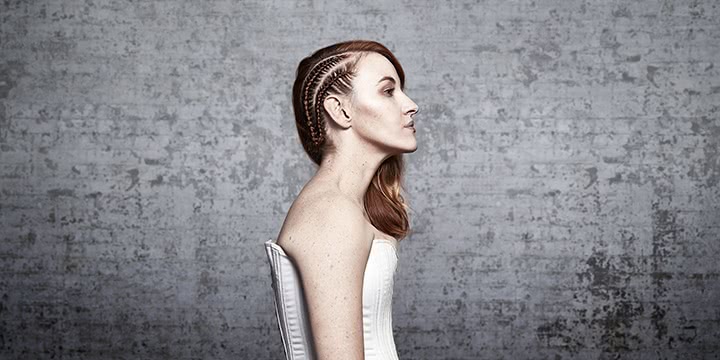Most theatre seasons are blessed with a production that generates buzz long before opening night rolls around.
Be it the calibre of the cast and crew, or the esteem of the play itself, some productions just have a knack for getting tongues talking. Early in the year it may be, but already Bell Shakespeare’s production of Richard 3 has those in the industry on tenterhooks. With Kate Mulvany as the charming titular villain, it promises to be a dark interpretation of an already bloody story. Rose Riley talks us through her role, and why this tale of power and cruelty can’t help but resonate beyond the stage.
“I’m playing Lady Anne, who was a real person though not a lot is known about her,” Riley explains. In the background, the sounds of rehearsal add a nice theatrical touch to the conversation. “She’s married to Richard, though not for a terribly long time before he gets rid of her. I’ve never seen any other productions of Richard 3, just snippets at drama school, and have seen the Ian McKellan film. When you take on a Shakespeare character, which is a character that has been performed so many times before, I always try and start afresh: start with my own understanding, and take what you’re given from the script and work up from there.
“There’s so much to learn from one of the history plays. Especially for myself; I haven’t performed or even studied one of the histories until now. It’s such a dense world with so much to learn. These family trees spanning generations, characters that all intertwine. So there’s been a huge evolution in my understanding of this world. It’s weird to think back to day one, and how much can happen in the last five weeks. It’s pretty massive.”
Richard III – deformed in both body and deed – is one of literature’s great monsters. His ambition for the crown sees him betray enemy and ally with equal compunction. Macbeth could at least share crimes with his wife; Richard’s sole fealty is to power. Although it was not Bell Shakespeare’s intention to mount a commentary on contemporary events – and indeed, it seems quite keen to avoid obvious parallels – it is impossible to witness such a duplicitous ascent to leadership without being reminded of certain international figures.
“I think no matter when you put on one of Shakespeare’s plays, you’ll happily and easily find contemporary parallels. That speaks about the accessibility, the timelessness of his plays. So you can draw those conclusions any time, but certainly with the Trump campaign and presidency,” Riley laughs.
“It’s something we’ve tried to avoid in the rehearsal room because I think everyone is trying to avoid it already in life, because it’s such a constant topic of stress. So here, we can’t help but occasionally mention certain things, but we’re trying to steer clear a little. We’re not doing a production of American politics, you know? It’s not, ‘Is Trump Richard?’, but that is unavoidable. In a time of anxiety and fear and corrupt leadership, those things are so prevalent in the play – it’s impossible not to make that connection.
“Richard III is one of the most tantalising villains,” she continues. “Any production, it’s going to be about him. Other plays, like Romeo And Juliet, it’s about the lovers and that spark. But with Richard, it’s really a personality piece. Especially having Kate play Richard, that’s a huge drawcard for many reasons. He’s very charming, and is one of the great anti-heroes. And having it played by a woman is really adding to the excitement.”
[Richard 3 photo by Pierre Toussaint]
Richard 3runsSaturday February 25 – Saturday April 1 at the Playhouse, Sydney Opera House.


































